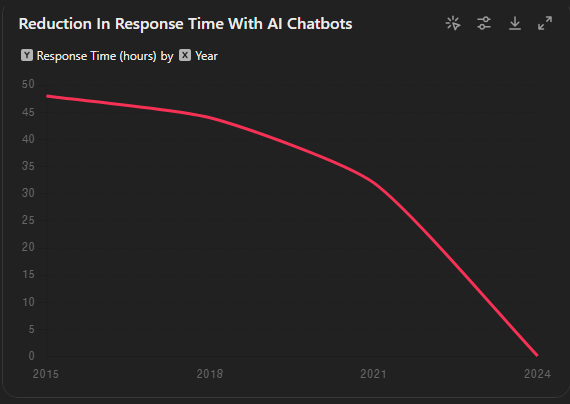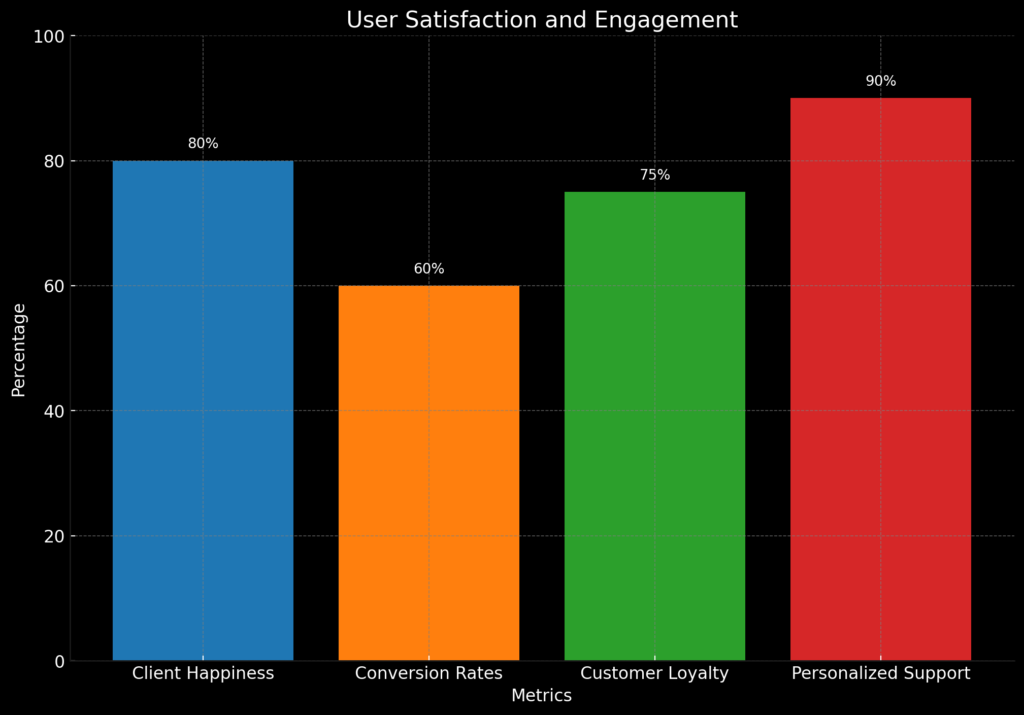How GenAI Improves Application Maintenance and Support Metrics

Support Operations Manager

The integration of generated artificial intelligence (GenAI) chatbots in application support services has significantly transformed the landscape of customer support. This transformation has brought about changes in key performance indicators (KPIs), such as response time and user satisfaction. The evolution of application maintenance and support metrics reflects the shift towards more efficient, immediate, and user-friendly support systems. This article explores how GenAI chatbots have influenced these metrics, emphasizing the improvements in service level agreements (SLAs) and user satisfaction.
Key Metrics in Application Maintenance and Support Services
When discussing application maintenance and support services, it is essential to monitor specific key performance indicators (KPIs) to ensure the effectiveness and efficiency of the services provided. Here are the main metrics to consider:
- Response Time
- Importance: Measures how quickly support teams respond to user inquiries or issues. Faster response times improve user satisfaction and trust.
- Resolution Time
- Importance: Indicates the time taken to resolve issues. Shorter resolution times lead to increased user satisfaction and operational efficiency.
- User Satisfaction
- Importance: Reflects the overall satisfaction of users with the support services. High satisfaction rates are crucial for maintaining a positive reputation and customer loyalty.
- First Contact Resolution (FCR)
- Importance: The percentage of issues resolved on the first interaction. Higher FCR rates reduce the need for follow-up interactions, improving efficiency and user experience.
- Service Level Agreement (SLA) Compliance
- Importance: Measures adherence to agreed-upon service standards. Meeting SLAs is vital for maintaining trust and ensuring reliable service delivery.
- Number of Iterations
- Importance: Counts the number of interactions required to resolve an issue. Fewer iterations indicate more efficient support processes.
By understanding and optimizing these metrics, organizations can significantly enhance their application maintenance and support services, ensuring they meet user expectations and operational goals. This foundational knowledge sets the stage for exploring how GenAI technologies can further impact these metrics, driving even greater efficiencies and user satisfaction.
Reducing Response Time in Application Maintenance and Support
One of the most notable impacts of GenAI chatbots in application support services is the drastic reduction in response times. Traditionally, users could expect a response time ranging from 24 to 48 hours for support queries. However, with the implementation of conversational chatbot technology, this time has been reduced to mere minutes. The use of GenAI-powered chatbots in application support services enhances user satisfaction and trust by effectively addressing errors through techniques such as data-driven feedback loops and various learning methods as outlined in a recent study on conversational GenAI error correction and adaptation (Izadi & Forouzanfar, 2024).

Enhancing User Satisfaction in Application Maintenance and Support
User satisfaction is another critical KPI that improved with the adoption of GenAI chatbots in application maintenance and support. Chatbots equipped with natural language processing (NLP) algorithms can comprehend user inquiries and provide relevant, accurate responses, which enhances the user experience. GenAI-powered chatbots are revolutionizing user experiences, customer satisfaction, and efficiency, although they also raise ethical and privacy concerns, particularly in sensitive domains like healthcare services (Aslam, 2023).
Moreover, the integration of machine learning algorithms enable chatbots to continuously learn and improve their responses. This capability not only reduces errors, but also builds user trust and satisfaction through data-driven feedback loops and adaptive learning techniques such as reinforcement learning and supervised learning.

Biases in User Satisfaction Metrics
While GenAI chatbots can significantly improve response times and streamline support services, user satisfaction as a KPI can be subjective and prone to biases. For instance, some users may provide lower satisfaction ratings due to inherent prejudices against GenAI, regardless of the quality of service provided. Studies indicate that highly human-like chatbots increase user satisfaction in error-free situations, but less-human-like chatbots might be preferred in error-prone scenarios to mitigate biases in subjective user satisfaction metrics (Franke, Gröppel-Klein, & Matla, 2024).
Additionally, emotionally intelligent chatbots that simulate empathy can enhance user experiences, but achieving authentic empathy remains challenging. Privacy and security concerns further complicate user satisfaction, as users might distrust the technology despite its effectiveness (Rostami & Navabinejad, 2023).
Changes in SLAs
Service level agreements (SLAs) have also evolved with the integration of GenAI chatbots. The immediate response capability of chatbots set new benchmarks for response times in SLAs. This shift allows support services to offer more stringent and customer-friendly SLAs, enhancing the reliability and trustworthiness of the services provided. Additionally, GenAI chatbots maintain consistent service quality, which is crucial for meeting SLA commitments.
Industry Examples of GenAI Chatbots Impact on Application Maintenance and Support Metrics
Several case studies and industry implementations illustrate the positive impact of GenAI chatbots on application support services. For example, GenAI technology in psychological counseling utilizes machine learning algorithms to predict counseling outcomes and user satisfaction through the analysis of user conversations with GenAI chatbots, enhancing counseling effectiveness and user experience (Ping, 2024). Such advancements underline the potential of GenAI chatbots to revolutionize support services across various fields.
Elevating Application Maintenance and Support Metrics to a New Level
With the use of GenAI, improvements in basic application maintenance and support metrics have already been achieved. As part of the evolution, teams should reconsider and elevate their KPIs to a new level. For instance, metrics related to the efficiency of support could include “the number of iterations in a conversation with the user to achieve a result” or “the percentage of inquiries correctly resolved with the help of GenAI” (Nguyen & Choudhary, 2023). This approach would not only provide a more detailed understanding of GenAI chatbot performance but also highlight areas for further improvement. Perhaps this point could be left as an open question for further thought.
The Path Forward: Enhancing Application Support with GenAI Technology
The integration of GenAI chatbots in application support services has brought about significant changes in KPIs, particularly in response times and user satisfaction. By leveraging advanced NLP and machine learning algorithms, chatbots have not only improved the efficiency and quality of support services, but have also set new standards for SLAs. However, addressing biases in user satisfaction and ensuring data privacy and security are crucial for maximizing the benefits of GenAI chatbots. As GenAI technology continues to evolve, we can expect further enhancements in the capabilities of chatbots, driving even greater improvements in the performance and reliability of application maintenance and support services.
At First Line Software, we are fully equipped to address the challenges posed by generative GenAI. Contact us immediately to discover how our cutting-edge GenAI technology can significantly enhance your support services. Don’t wait—let’s explore the transformative possibilities together!
